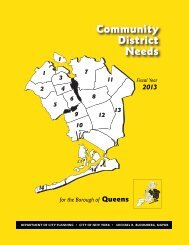Palm Oil Buyers Scorecard
WWF_Palm_Oil_Scorecard_2016
WWF_Palm_Oil_Scorecard_2016
Create successful ePaper yourself
Turn your PDF publications into a flip-book with our unique Google optimized e-Paper software.
THE ROLE OF<br />
GOVERNANCE IN<br />
PRODUCER COUNTRIES<br />
DESPITE THIS<br />
PROGRESS,<br />
DEFORESTATION IS<br />
STILL HAPPENING AT<br />
AN ALARMING RATE<br />
In the last 10 years, in the face of<br />
greater transparency, closer scrutiny<br />
and continual criticism, the palm oil<br />
industry has started to change. Since<br />
2009, this progress has been charted by<br />
the WWF <strong>Palm</strong> <strong>Oil</strong> <strong>Buyers</strong> <strong>Scorecard</strong>s.<br />
And the results of this 2016 <strong>Scorecard</strong><br />
confirm that leading parts of the industry<br />
have made genuine steps toward the<br />
transformation of their own practices.<br />
More than 3,000 companies are now<br />
members of the RSPO. Close to a fifth of<br />
the world’s palm oil is produced to the<br />
RSPO standard, with 6 million tonnes<br />
being bought and claimed as CSPO by<br />
brands across the world. Up to 80 per<br />
cent of European and even US use of palm<br />
oil is being met by CSPO. Recently, some<br />
commentators were declaring that 90 per<br />
cent of the world’s palm oil is covered by a<br />
no-deforestation commitment.<br />
The RSPO has also kickstarted change<br />
that in some cases has gone even further<br />
There has been major progress<br />
on transformation of the palm<br />
oil industry – but significant<br />
challenges remain.<br />
than originally envisioned. There has<br />
been a wave of commitments by many<br />
global brands to eliminate deforestation<br />
from their supply chains; several of the<br />
major palm oil producers and traders<br />
have committed to zero deforestation,<br />
zero peat and zero exploitation; and we’ve<br />
seen sustainability platforms develop<br />
among producing companies, local NGOs<br />
and brands. The <strong>Palm</strong> <strong>Oil</strong> Innovation<br />
Group (POIG) has come together as a<br />
coalition of innovators and has already<br />
succeeded in encouraging the RSPO to<br />
develop its NEXT version of the standard<br />
for sustainable palm oil.<br />
So is the job done?<br />
Well, not quite. Despite this progress,<br />
deforestation is still happening at an<br />
alarming rate. <strong>Palm</strong> oil in Southeast<br />
Asia is growing at half a million hectares<br />
a year – and almost half of that is on<br />
forest land. In 2015, fires in Kalimantan<br />
and Sumatra cleared 2 million hectares<br />
of land and forested areas and created<br />
68<br />
100<br />
ASSOCIATED<br />
UNTIL BRITISH THE WHOLE FOODS<br />
INDUSTRY IMUSA DOLUPTATIOS<br />
CHANGES,<br />
COMMITMENTS VOLORE EICIIS IMUS AT<br />
THE A TOP AUT WILL ET AUT HAVE QUI.<br />
ONLY DAE A LIMITED COMNIS<br />
CORROVIDUNT IMPACT ON THE AD<br />
GROUND<br />
Ad mos ipsapic<br />
tatecatum aut<br />
quo que am<br />
critical health issues in Indonesia,<br />
Singapore and Malaysia. Conflicts with<br />
communities and the workforce continue<br />
to hold back the industry’s progress.<br />
So if companies are doing what we ask<br />
of them, and in some cases making their<br />
own commitments to go even further, why<br />
do the problems still persist?<br />
Barriers to change<br />
The reality is that, despite their best<br />
intentions, innovators can only take<br />
things so far. The industry may be<br />
dominated by a handful of massive<br />
global players with headline-grabbing<br />
commitments to no deforestation, but it is<br />
built on a foundation of thousands of small<br />
and mid-sized companies and millions of<br />
independent smallholder producers. And<br />
unfortunately, as WWF’s work in Tesso Nilo<br />
and elsewhere shows, those foundations<br />
are often illegal and unsustainable (see<br />
page 56). Until the whole industry changes,<br />
commitments at the top will have only a<br />
limited impact on the ground.<br />
At the same time, limits to change<br />
are also being imposed by the very<br />
authorities who should be setting<br />
policies and regulation to make the<br />
industry more sustainable. Rather than<br />
welcoming the sustainability efforts<br />
of individual companies and industry<br />
coalitions, the governments of Indonesia<br />
and Malaysia have been sending mixed<br />
messages. On the one hand, Indonesia<br />
has extended its moratorium for new<br />
palm oil developments on peat and even<br />
established an agency to restore degraded<br />
peat areas. On the other, it recently put<br />
pressure on leading producers to roll<br />
back some of their more progressive<br />
developments, such as the Indonesia<br />
<strong>Palm</strong> <strong>Oil</strong> Pledge (IPOP), because it saw<br />
them as inherently critical of the rest of<br />
the industry. This pressure led to IPOP’s<br />
demise in 2016.<br />
Both Indonesia and Malaysia have<br />
introduced national certification schemes<br />
based on legal compliance in an attempt<br />
to eliminate the worst practices within<br />
their industries. But at the same time<br />
the Malaysian authorities are blocking<br />
the RSPO from collecting and publishing<br />
maps of landbanks controlled by the large<br />
industry players – an essential element of<br />
transparency.<br />
Unfortunately it is not just mixed<br />
messages that are holding back progress.<br />
WWF’s work, including that highlighted<br />
in this report, shows that a lack of<br />
enforcement means that independent palm<br />
oil producers are free to illegally clear<br />
protected land. It is a recipe for disaster<br />
– and the Tesso Nilo National Park has<br />
now almost vanished under a tide of<br />
illegal palm oil as a result. This highlights<br />
how systemic governance weaknesses<br />
undermine the progressive actions of<br />
some parts of the industry to eliminate<br />
deforestation from the global supply chain.<br />
Is it too late for palm oil?<br />
So it is hardly a surprise that global<br />
brands and progressive producers<br />
working within this environment<br />
are failing to implement their own<br />
commitments to end deforestation. Not<br />
only must they try to persuade thousands<br />
of other stakeholders to change, but they<br />
are doing so in a climate where change<br />
is unsupported and sometimes actively<br />
undermined by governments.<br />
Ultimately, it seems unclear whether<br />
the countries where the most palm oil is<br />
produced can truly visualize the future<br />
WHAT’S AT STAKE<br />
ARE SOME OF THE<br />
WORLD’S MOST<br />
VALUABLE FORESTS,<br />
AND THE SPECIES<br />
AND PEOPLE THAT<br />
DEPEND ON THEM AS<br />
WELL AS THE LONG-<br />
TERM VIABILITY<br />
OF THE PALM OIL<br />
BUSINESS<br />
of their industries without deforestation.<br />
Unless this changes, responsible parts of<br />
the industry will inevitably decide that<br />
the risk of doing business under such<br />
conditions is not worth the rewards. We<br />
can already see this happening in the<br />
US and parts of the European market<br />
where some companies are choosing to<br />
substitute palm oil with other edible oils.<br />
If this industry is going to stop<br />
deforestation then it urgently needs<br />
governments to play their part. The<br />
fundamental truth is that the absence<br />
of good governance has created a<br />
“Wild East”, which is exploited by the<br />
unscrupulous and which constrains the<br />
more responsible parts of the industry.<br />
This has to change.<br />
Bringing government to<br />
the table<br />
We cannot afford to ignore the truth and<br />
simply pretend that everything is fine.<br />
However, the answer is not more kneejerk<br />
criticism by the authorities of NGOs,<br />
the RSPO or even those responsible<br />
industry players who are exposing poor<br />
practices. But neither is it a good idea<br />
for consumers or international brands to<br />
boycott palm oil.<br />
Instead, the answer is to create a level<br />
playing field where unsustainable<br />
practices are eliminated and every<br />
company is allowed, encouraged,<br />
supported and maybe even forced to<br />
act responsibly. This will only happen if<br />
governments collaborate with innovators.<br />
One ray of hope for closer companygovernment<br />
working is the emergence<br />
of the “Jurisdictional Approach”, which<br />
focuses on the governance capacity of<br />
a particular region and provides some<br />
framework around good governance as<br />
a market requirement for palm oil. This<br />
approach is taking root in the Malaysian<br />
state of Sabah and the Indonesian<br />
province of Central Kalimantan, where the<br />
governments are working together with<br />
key stakeholders to implement pledges<br />
that all palm oil produced must meet<br />
RSPO certification standards. Bringing<br />
government to the table is galvanizing<br />
both large multinational plantation<br />
owners and smallholders to engage.<br />
WWF co-founded the RSPO in 2004<br />
because we saw the potential within the<br />
industry to change. To date that change<br />
has been driven by the market and the<br />
companies themselves. This <strong>Scorecard</strong><br />
measures that change – but it also<br />
highlights that corporate change alone is<br />
no longer enough. The industry leaders<br />
are reaching the limits of how far and how<br />
fast they can progress. Although there is<br />
considerable scope for other companies to<br />
match their efforts, we are not convinced<br />
that the next 10 years will see enough<br />
further progress to end deforestation<br />
without governments changing too.<br />
WWF asks companies that use palm<br />
oil to engage with governments<br />
in producer countries, both at<br />
the national and jurisdictional<br />
level, asking for a level playing<br />
field that eliminates unsustainable<br />
practices and mandates responsible<br />
production. Industry leaders must<br />
work together with governments to<br />
make this happen. What’s at stake<br />
are some of the world’s most valuable<br />
forests, and the species and people<br />
that depend on them as well as the<br />
long-term viability of the palm oil<br />
business and the economic benefits it<br />
brings to producing countries.<br />
51 WWF PALM OIL BUYERS SCORECARD 2016




